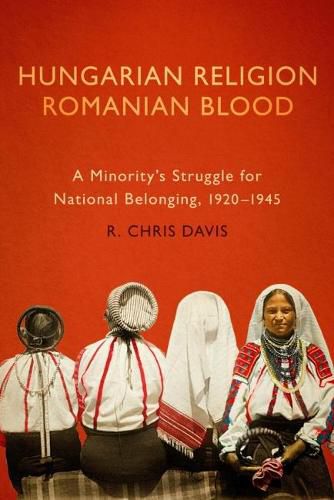Readings Newsletter
Become a Readings Member to make your shopping experience even easier.
Sign in or sign up for free!
You’re not far away from qualifying for FREE standard shipping within Australia
You’ve qualified for FREE standard shipping within Australia
The cart is loading…






This title is printed to order. This book may have been self-published. If so, we cannot guarantee the quality of the content. In the main most books will have gone through the editing process however some may not. We therefore suggest that you be aware of this before ordering this book. If in doubt check either the author or publisher’s details as we are unable to accept any returns unless they are faulty. Please contact us if you have any questions.
Amid the rising nationalism and racial politics that culminated in World War II, European countries wishing to purify their nations often forced unwanted populations to migrate. The targeted minorities had few options, but as R. Chris Davis shows, they sometimes used creative tactics to fight back, redefining their identities to serve their own interests.
Davis’s highly illuminating example is the case of the little-known Moldavian Csangos, a Hungarian- and Romanian-speaking community of Roman Catholics in eastern Romania. During World War II, some in the Romanian government wanted to expel them. The Hungarian government saw them as Hungarians and wanted to settle them on lands confiscated from other groups. Resisting deportation, the clergy of the Csangos enlisted Romania’s leading racial anthropologist, collected blood samples, and rewrote a millennium of history to claim Romanian origins and national belonging-thus escaping the discrimination and violence that devastated so many of Europe’s Jews, Roma, Slavs, and other minorities. In telling their story, Davis offers fresh insight to debates about ethnic allegiances, the roles of science and religion in shaping identity, and minority politics past and present.
$9.00 standard shipping within Australia
FREE standard shipping within Australia for orders over $100.00
Express & International shipping calculated at checkout
This title is printed to order. This book may have been self-published. If so, we cannot guarantee the quality of the content. In the main most books will have gone through the editing process however some may not. We therefore suggest that you be aware of this before ordering this book. If in doubt check either the author or publisher’s details as we are unable to accept any returns unless they are faulty. Please contact us if you have any questions.
Amid the rising nationalism and racial politics that culminated in World War II, European countries wishing to purify their nations often forced unwanted populations to migrate. The targeted minorities had few options, but as R. Chris Davis shows, they sometimes used creative tactics to fight back, redefining their identities to serve their own interests.
Davis’s highly illuminating example is the case of the little-known Moldavian Csangos, a Hungarian- and Romanian-speaking community of Roman Catholics in eastern Romania. During World War II, some in the Romanian government wanted to expel them. The Hungarian government saw them as Hungarians and wanted to settle them on lands confiscated from other groups. Resisting deportation, the clergy of the Csangos enlisted Romania’s leading racial anthropologist, collected blood samples, and rewrote a millennium of history to claim Romanian origins and national belonging-thus escaping the discrimination and violence that devastated so many of Europe’s Jews, Roma, Slavs, and other minorities. In telling their story, Davis offers fresh insight to debates about ethnic allegiances, the roles of science and religion in shaping identity, and minority politics past and present.